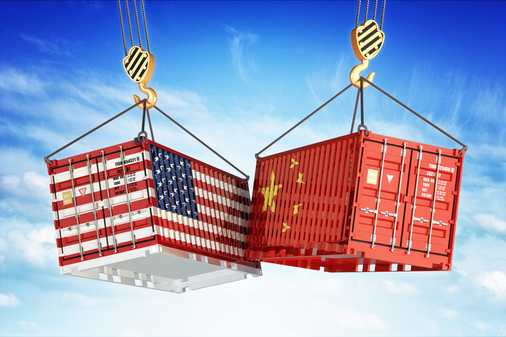
©cybrain/ISTOCK/THINKSTOCK
According to a recent survey, CFO optimism has waned and uncertainty around trade and tariffs may be to blame. Deloitte’s Q3 CFO Signals Survey revealed that North American economic optimism declined from last quarter’s high – 94 percent to 89 percent. “I'm seeing clients really struggle with how to think about budgeting and forecasting, especially where tariffs could come into play,” says Sandy Cockrell, global leader of the CFO Program for Deloitte.
“If you think about the population and the CFOs that participate in this report, nearly all of them are from large public company multinationals who trade and buy and sell product and goods, services, whatever it may be back and forth between China, or back and forth between Canada and Mexico. And so, with a lack of clarity as to ‘will we really end up with the new NAFTA? Will we really end up with this trade regime between the U.S. and China?’ There's just a lot of caution there.”
“When you lay that on top of the fact that we are almost into October, this is exactly when large calendar based companies with calendar year-ends are really beginning to get into the depth of their 2019 budget cycle. If you're the CFO of a large multinational who's got a supply chain between U.S. and Canada, U.S. and Mexico or U.S. and China, and you were trying to think about margins and indirect costs, it would attach to that product going back and forth.”
Though risks around trade are clearly on the minds of CFOs, for the first time this year, CFOs viewed internal risks as more constraining to performance than external risks. Cockrell explains that there are two internal risks areas causing concern for CFOs: talent and effective execution.
It's not just talent in the finance organization, Cockrell points out, but talent across the enterprise. “It's being driven by this accelerating pace of digitization, and the ability to really acquire and execute and implement new technologies that didn't even exist a few years ago… CFOs have a concern, from the finance function view, that they have a lot of work to do over the next couple years so that finance can keep up and provide the insight.”
Effective execution is another area of risk CFOs are grappling with. Not only are CFOs expected to be strategists, they are expected to be catalysts, to drive change and execute strategy.
“Today, because of disruption and new business models, strategy development is almost perpetual. That puts a lot of pressure on CFOs to be able to help steer an organization or pivot organizations to keep up with that. So, the other concern that has come is a lack of confidence of actually being able to execute and pivot on a dime, and to be able to move quickly. That's an internal constraint.”